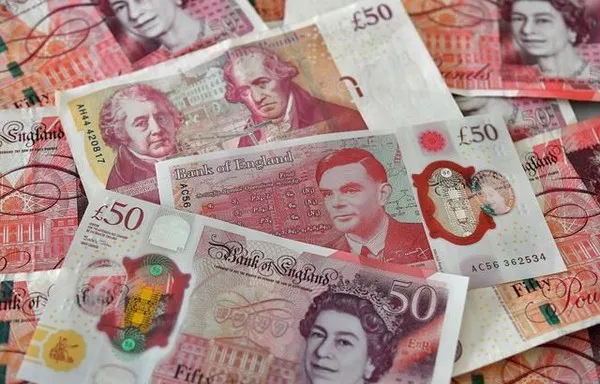Travelling to London, the capital city of the United Kingdom, is a thrilling experience for many. Amidst the excitement of exploring its iconic landmarks, vibrant culture, and rich history, it’s crucial to consider your financial arrangements. One of the key decisions to make is whether to exchange currency before departure or upon arrival. In this comprehensive guide, we’ll delve into various aspects of purchasing pounds before traveling to London, including currency exchange rates, convenience, budgeting, and safety considerations.
Introduction to UK Currency
The official currency of the United Kingdom is the British Pound Sterling, denoted by the symbol £ and the ISO code GBP. It is one of the oldest currencies still in use today, with a history dating back over a thousand years. The pound is divided into 100 smaller units called pence.
Overview of the British Pound Sterling
The British Pound Sterling is one of the world’s major reserve currencies and holds significant importance in global financial markets. Its exchange rate fluctuates based on various factors such as economic indicators, geopolitical events, and market sentiment. Understanding the current exchange rate is crucial for making informed decisions regarding currency exchange.
Understanding Currency Exchange Rates
Currency exchange rates determine the value of one currency relative to another. They fluctuate constantly due to the forces of supply and demand in the foreign exchange market. When exchanging currency, individuals should be aware of both the buying and selling rates offered by exchange providers, as there is typically a markup known as the spread.
Pros and Cons of Buying Pounds Beforehand
Convenience and Security of Having Local Currency Upon Arrival
Purchasing pounds before traveling to London provides the convenience of having local currency immediately available upon arrival. This eliminates the need to seek out currency exchange services at airports or other locations, saving time and potential hassle. Additionally, carrying cash can be reassuring for those who prefer not to rely solely on cards.
Potential Downsides Like Poor Exchange Rates Abroad
However, buying pounds in advance may come with the risk of receiving less favorable exchange rates compared to those available in London. Exchange rates offered by banks or currency exchange bureaus in your home country may not be as competitive as those found in the UK.
Currency Exchange Options
Comparing Rates at Airports, Banks, and Local Exchange Bureaus
Before traveling to London, it’s advisable to compare currency exchange rates offered by different providers, including banks, airports, and local exchange bureaus. While airports and tourist areas may offer convenience, they often have higher fees and less favorable rates compared to banks or independent exchange offices.
The Benefits of Using ATMs in London for Withdrawals
Using ATMs in London is often a convenient and cost-effective way to obtain pounds. Most ATMs accept international cards and offer competitive exchange rates. However, be mindful of potential ATM fees charged by your bank for overseas withdrawals.
Using Credit and Debit Cards in the UK
Fees and Charges Associated with Card Use Abroad
Using credit and debit cards for transactions in the UK is widely accepted and convenient. However, it’s essential to be aware of potential fees and charges, including foreign transaction fees, currency conversion fees, and ATM withdrawal fees. These fees can quickly add up, so it’s advisable to check with your bank regarding their international transaction policies.
Tips for Avoiding Extra Costs and Securing the Best Rates
To minimize extra costs associated with card use abroad, consider using cards that offer favorable exchange rates and low or no foreign transaction fees. Additionally, notify your bank of your travel plans to avoid any unexpected card blocks or security measures.
Budgeting for Your Trip
Estimating Daily Expenses in London
London is known for its diverse range of attractions, dining options, and entertainment venues. Estimating your daily expenses can help you create a realistic travel budget. Factors to consider include accommodation, food, transportation, sightseeing, and souvenirs.
How to Set a Travel Budget and Stick to It
Setting a travel budget involves determining how much you’re willing to spend on various aspects of your trip and allocating funds accordingly. Tracking your expenses during your stay can help you stay within budget and avoid overspending.
Safety and Security
Protecting Your Money While Traveling
Safety should always be a priority when traveling, especially concerning your finances. Keep your cash and cards secure by using a money belt or a secure wallet. Avoid carrying large sums of cash and be cautious when using ATMs in unfamiliar locations.
What to Do in Case of Lost or Stolen Currency
In the unfortunate event of lost or stolen currency, it’s essential to act quickly to minimize potential losses. Report any incidents to the local authorities and contact your bank to block any compromised cards. Having backup funds or a contingency plan can provide peace of mind in such situations.
See also What Are The Coins Of The Pound Sterling?
Conclusion
In conclusion, the decision to buy pounds before traveling to London depends on various factors, including convenience, exchange rates, and personal preferences. While purchasing currency in advance offers the advantage of having pounds readily available upon arrival, it’s essential to weigh the potential downsides such as poor exchange rates. By comparing currency exchange options, budgeting effectively, and prioritizing safety and security, travelers can enjoy their time in London with financial peace of mind. Whether you choose to exchange currency before departure or upon arrival, embracing the vibrant culture and unique experiences London has to offer is sure to make your trip memorable.


